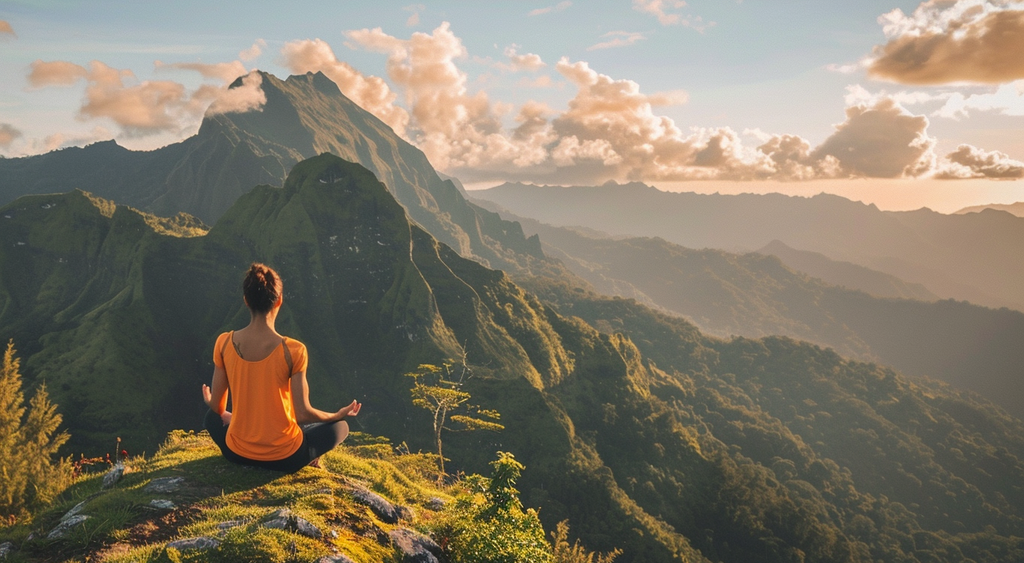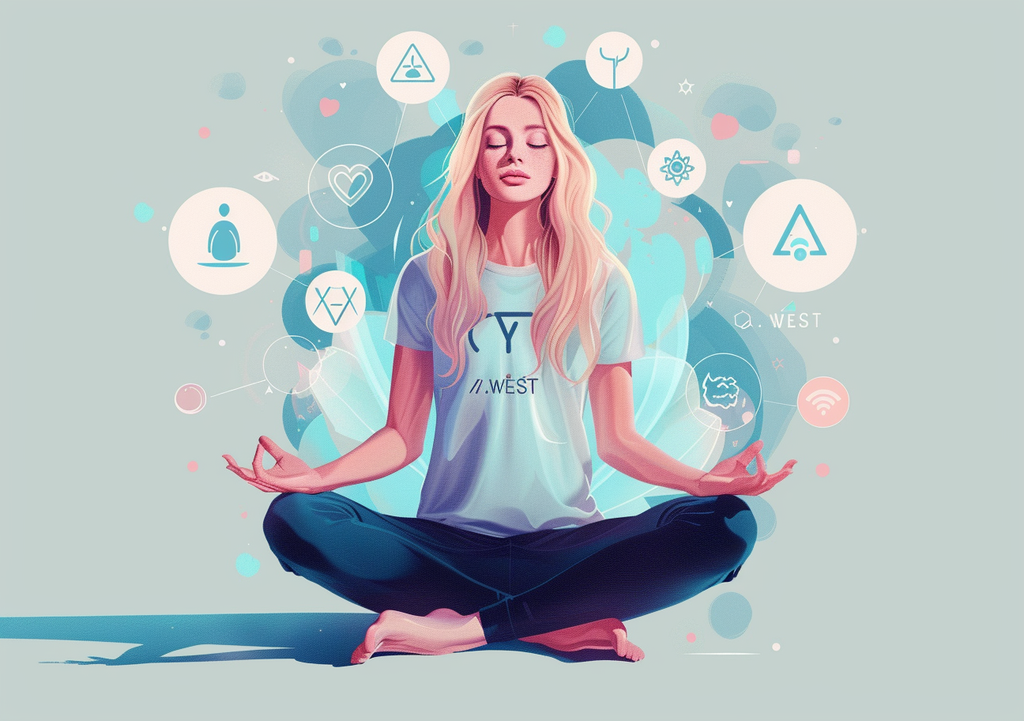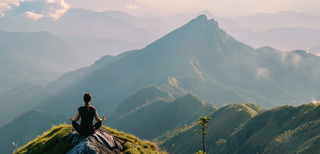Meditation is a practice where an individual uses a technique – such as mindfulness, or focusing the mind on a particular object, thought, or activity – to train attention and awareness, and achieve a mentally clear and emotionally calm and stable state.
Key Takeaways
| What is spiritual well-being? | A sense of connection to something larger than oneself, purpose in life, and peace of mind. |
|---|---|
| What are the benefits of daily rituals for mindfulness and inner peace? | Reduced stress, improved focus, greater self-awareness, and a more positive outlook on life. |
| What are some simple daily rituals to nurture your spirit? | Meditation, journaling, gratitude practice, spending time in nature, and connecting with loved ones. |

What is Spiritual Well-Being?
Spiritual well-being encompasses a sense of connection to something larger than oneself, purpose in life, and peace of mind. It's not necessarily tied to any specific religion, but rather a personal journey of exploration and growth. When our spirits are nurtured, we feel a sense of inner calm, resilience, and connection to the world around us.
The Power of Daily Rituals
Simple daily rituals can be incredibly powerful tools for cultivating mindfulness and inner peace. These practices create space in our busy lives to focus inward, connect with our deeper selves, and appreciate the present moment. The key is to find practices that resonate with you and that you can integrate seamlessly into your daily routine.
Here are some simple daily rituals to get you started:
-
Meditation: Meditation is a practice of quieting the mind and focusing your attention. There are many different meditation techniques, but even a few minutes of mindful breathing each day can have a profound impact on your stress levels and overall well-being. For beginners, guided meditations can be a helpful introduction.
-
Journaling: Journaling is a powerful tool for self-reflection and emotional processing. Take some time each day, even just a few minutes, to write down your thoughts and feelings. This can help you gain clarity on your experiences, identify patterns, and release negative emotions.
-
Gratitude Practice: Cultivating an attitude of gratitude is a powerful way to shift your perspective and increase happiness. Each day, take a moment to reflect on the things you're grateful for, big or small. You can write them down in a journal, share them with a loved one, or simply take a mental note.
-
Spending Time in Nature: Immersing yourself in nature is a wonderful way to de-stress and reconnect with yourself. Take a walk in the park, sit by a stream, or simply gaze at the stars. Studies have shown that spending time in nature can reduce stress hormones, improve mood, and boost creativity.
- Connecting with Loved Ones: Strong social connections are essential for our emotional well-being. Make time to connect with loved ones, whether it's through face-to-face interaction, phone calls, or video chats. Sharing laughter, support, and conversation can uplift your spirits and provide a sense of belonging.

Deepening Your Practice: Daily Mindfulness
The beauty of these daily rituals lies in their simplicity and adaptability. As you establish a foundation for mindfulness and inner peace, you can explore ways to deepen your practice and personalize it further. Here are some additional tips and techniques to consider:
-
Mindfulness in Everyday Activities: Look for opportunities to practice mindfulness throughout your day. Pay attention to the sensory details of your experiences, such as the taste of your food, the sound of your breath, or the feeling of your feet on the ground. This simple act of bringing your awareness to the present moment can be incredibly grounding and calming.
-
Gratitude Practice Variations: There are many ways to incorporate gratitude practice into your life. Consider creating a gratitude jar where you write down things you're grateful for and revisit them on challenging days. You could also try a gratitude meditation, focusing on specific people or experiences that bring you joy.
-
Journaling Prompts: If you find free journaling a bit daunting, consider using journaling prompts to guide your reflection. Prompts can be open-ended, like "What brought me joy today?" or more specific, like "What am I currently worried about, and how can I approach it with a more positive perspective?"
-
Nature Connection: While simply being in nature is beneficial, there are ways to deepen your connection. Try mindful walking meditation, focusing on your breath and the sensations of your body as you move. You could also practice forest bathing, a Japanese practice of spending time immersed in nature with all your senses.
- Creative Expression: Engaging in creative activities like painting, writing, or playing music can be a powerful tool for self-expression and stress reduction. Let your creativity flow freely, without judgment, and see what emerges.
Building a Sustainable Practice:
-
Start Small: Don't overwhelm yourself by trying to implement too many changes at once. Begin with one or two rituals that feel manageable and gradually add more as you establish a routine.
-
Schedule Time: Treat your daily rituals with the same respect you would an important appointment. Schedule time in your calendar for meditation, journaling, or spending time in nature. This will help you stay committed to your practice.
-
Create a Ritual Space: Dedicate a specific space in your home for your mindfulness practice. This could be a quiet corner with comfortable seating, a meditation cushion, or simply a designated area on your desk. Having a dedicated space can help signal to your mind and body that it's time to focus inward.
- Find a Supportive Community: Consider joining a meditation group, yoga class, or online forum dedicated to mindfulness and spiritual growth. Connecting with others who share your interests can provide encouragement, support, and accountability.

Remember:
- Be Consistent: The key to reaping the benefits of these rituals is consistency. Even a few minutes each day can make a big difference.
- Find What Works for You: Experiment with different practices and find what resonates most with you. There's no one-size-fits-all approach to spiritual well-being.
- Be Patient: Cultivating mindfulness and inner peace takes time and dedication. Don't get discouraged if you don't see results immediately. Just keep practicing and trust the process.
By incorporating these simple rituals into your daily life, you can nurture your spirit, cultivate mindfulness, and find a sense of inner peace that will enrich every aspect of your life. As a naturopath, I believe that true health and happiness come from a holistic approach that addresses our physical, mental, and spiritual well-being.
By nurturing your spirit, you're taking an important step towards a more fulfilling and meaningful life. As you continue to explore and experiment, you'll discover what works best for you and create a sustainable practice that enriches your life in countless ways.








